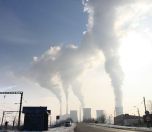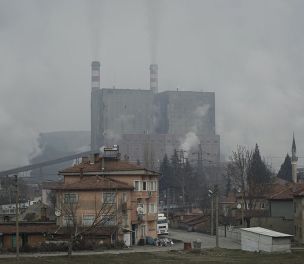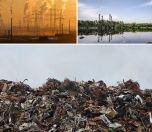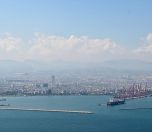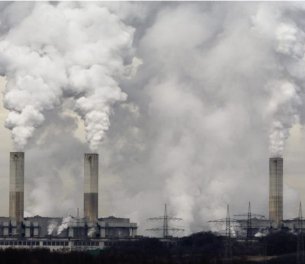Covid-19 Quarantine has Cleaned the Air of Turkey, What Should be Done Next?

* Photo: Pixabay
Click to read the article in Turkish
Since people stay home as part of measures taken against novel coronavirus (Covid-19) outbreak, the use of vehicles has considerably decreased and particulate matter (PM10) air pollution has abated by 32 percent in 29 metropolitan cities of Turkey.
As reported by the state-run Anadolu Agency (AA) based on the data collected by the air quality monitoring stations of the Ministry of Environment and Urbanization and municipalities, the lowest changes in the level of air pollution have been measured in İzmir, Muğla and Tekirdağ. In three metropolitan cities, air pollution has decreased only by 3 percent.
As for İstanbul, the most crowded city of Turkey, the pollution in the city's air has decreased by 11 percent after March 16. Considered by population, air pollution has abated by 27 percent in the capital city of Ankara, by 37 percent in Bursa, by 28 percent in Antalya and by 46 percent in Adana.
Speaking to bianet about the details of this data, Buket Atlı, the Coordinator of Right to Clean Air Platform, says that the information shared by the Ministry of Environment and Urbanization does not indicate that pollution is caused by industry, heating and traffic:
"As of March every year, there is a seasonal decrease in air pollution, resulting from a less frequent use of wood and coal. As traffic has thinned as a result of coronavirus measures, the abatement of the pollution caused by this may have added to that. However, it needs to be noted that after the Article 50 was vetoed amid public outrage, 5 coal-fired thermal power plants have been closed entirely and one of them partly since January 1, 2020."
'2 thermal plants in Maraş closed since January 1'
According to the latest figures, the highest decrease in air pollution in metropolitan cities has been recorded in Kahramanmaraş. Maraş has been followed by Urfa, Hatay, Van, Erzurum and Eskişehir. Since March 16, air pollution has abated by 60 percent in Maraş, 58 percent in Urfa, 55 percent in Hatay, 53 percent in Van and 51 percent each in Erzurum and Eskişehir.
In the Dark Report prepared by the Right to Clean Air Platform in 2018, Maraş was one of the cities with the highest level of air pollution. Welcoming the latest developments, Buket Atlı says the following:
"We don't think that the decrease in Maraş is solely caused by coronavirus. There are two thermal power plants in the region, one of them operating for 33 years and the other one for 15 years. It has to be noted that Afşin A and B Thermal Power Plant, which caused so much CO2 pollution that it was even cited in space data, has been closed since January 1."
On the other side, there are plans to build a 1,800 Megawatt third coal-fired thermal power plant in Afşin district of Maraş. The Environmental Impact Assessment (EIA) Report of the project has been approved as of March 31. In the event that the project is realized, it estimated that it will cause 33,000 people to die prematurely in 40 years, Atlı says.
'It has an impact on all airborne diseases'
Noting that breathing polluted air aggravates the effects of all airborne diseases, including Covid-19, Atlı says that while the fine particulate matter (PM2.5) leads to health problems caused by air pollution the most, Turkey does not have a national limit value or legal regulation stipulating a decrease:
"PM2.5, which directly mixes with the blood after being inhaled by the lungs and is proven to cause several health disorders including cancer, was measured by only 81 of 339 National Air Quality Monitoring Stations in Turkey in 2019. As there is no national limit value or a legal regulation, no precautions are taken about the consequences.

* Right to Clean Air Platform Coordinator Buket Atlı
"In the upcoming period, in order to prevent the air pollution from relapsing into its final level, the Ministry of Agriculture and Urbanization needs to urgently make sure that PM2.5 pollutant is measured in all cities and a legal regulation that also sets a national limit value is introduced.
Virus and air pollution: What do experts say?
Prof. Dr. Çiğdem Çağlayan, a representative from the Association of Public Health Professionals (HASUDER), which is also a member of the Right to Clean Air Platform, makes the following evaluation:
"Air pollution leads to both chronic diseases and the aggravation of the existing chronic diseases, thereby causing the virus to have a more deadly effect. Also, breathing polluted air damages the defense mechanism of respiratory system and makes it easier for the virus to enter the body and settle there. So, in order to reduce the damage of the virus on individuals, short- and long-term precautions need to be taken to decrease air pollution."
Prof. Dr. Ali Osman Karababa from Right to Clean Air Platform Physicians for Environment Platform draws attention to air quality limit values:
"While Australia and Canada observe the values suggested by the World Health Organization in their national legislation, limits close to these values have just been set in Japan and the US. Even China, where coal plays a significant role in energy policy, accepted different PM2.5 limits for the rural and urban parts of the country in the last years.
"As for Turkey, there are unfortunately no limit values or national legislation as to PM2.5. We request that national limits be set for PM2.5 pollutant in 2020 by considering the guiding values suggested by the World Health Organizations and the limits of the European Union."
Air pollution in 29 metropolitan cities
The data on air pollution (PM10, (µg/m3)) in 29 metropolitan cities of Turkey:
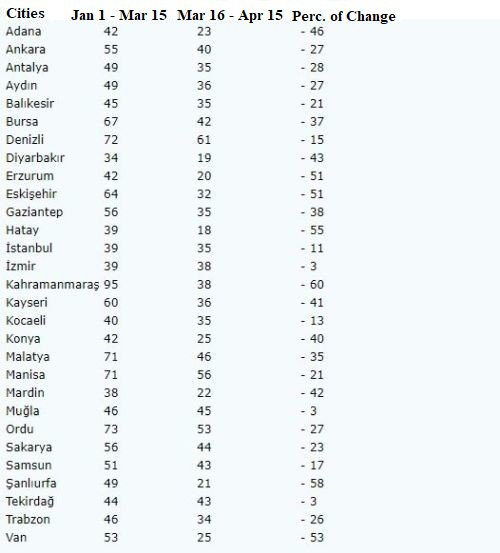
(TP/SD)
Exhibition of pets prohibited but sales continue: 'This cruelty must end all together'
.jpg)
Turkey's new electoral council rules may endanger election security, warns professor
.jpg)
Turkey's plastic waste imports: 'Chemicals are mixed into the food chain'

Why does a plane fail to take off from 3rd Airport while it can do so from Atatürk Airport?

Q&A WITH PROF. TOLUNAY
Is the climate crisis the only reason for drought in Turkey?






